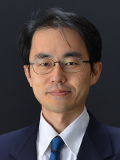
The Department of Applied Science and Engineering aims to nurture human resources who can lead the way in cutting-edge science and technology by returning the results of natural science to society. Today’s cutting-edge science and technology is characterized by the parallel development of scientific and technological (engineering) fields as if they were two wheels on a car. Therefore, in order to produce creative results in these fields, it is essential to have both scientific and engineering perspectives, to be able to return to the principles and principles of natural science and apply them to technology with a thorough understanding of them. Moreover, recent advanced technologies have developed not only in the conventional fields of physics and chemistry, but also in an extremely broad range of fields, including the biological field, in a cross-disciplinary manner.
Our department offers a continuous educational curriculum (up to and including graduate school) that prepares students to enter interdisciplinary, advanced technological fields after acquiring the ability to see the essence of things through broad study of the natural sciences (mathematics, physics, chemistry, and biology). After studying basic common subjects for two years, students in this class are divided into four major fields of study from the third year and study more specialized content. Thus, students can also choose a specialized field of study with sufficient time while receiving a university education. Approximately 90% of graduates advance to a master’s degree program at a graduate school, find employment at a company, or enter a doctoral program and become researchers at a university, public institution, or company. Some graduates are employed by companies immediately after graduation and are active on the front lines of society.
In this way, the School of Applied Science and Engineering allows you to choose the path that suits you best, from a front-line engineer to a cutting-edge researcher.
Dean, College of Engineering Sciences, University of Tsukuba
Nobuhiko Kobayashi
